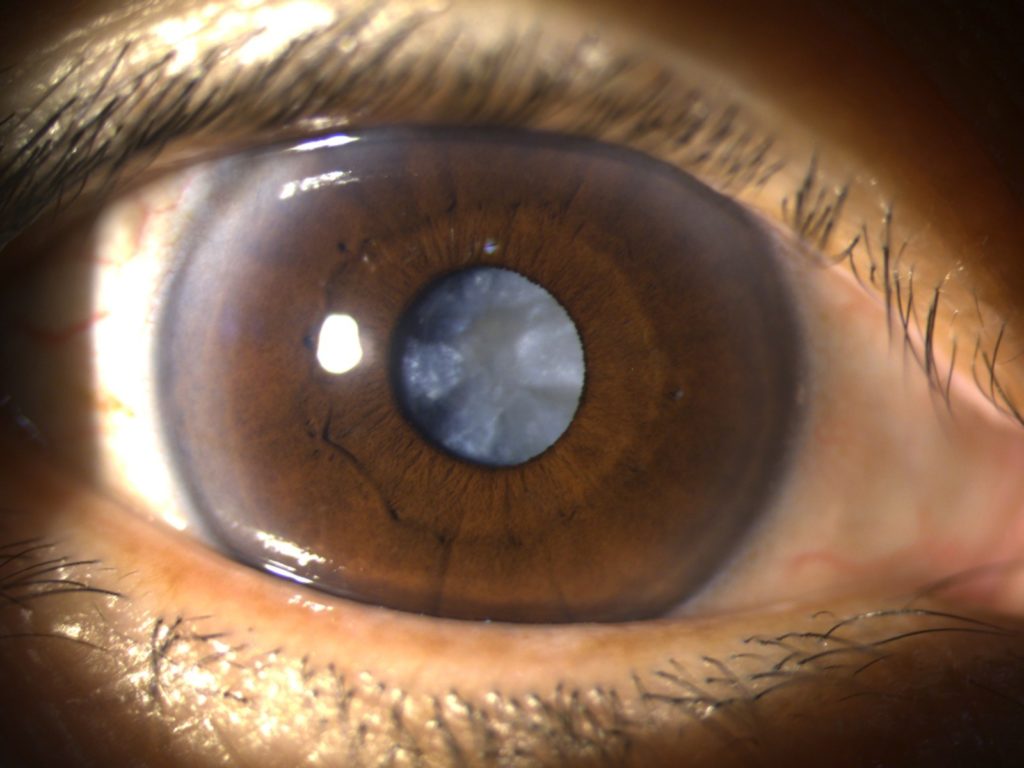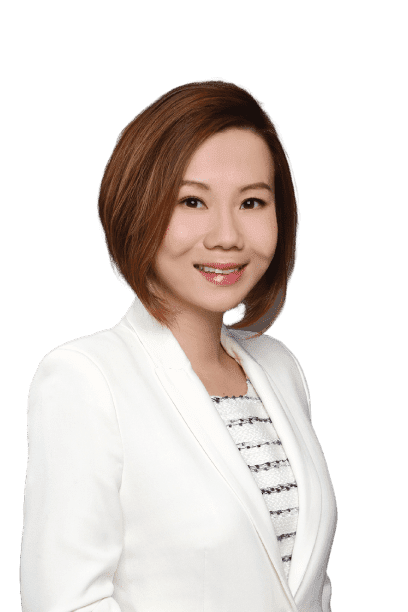Cataract Surgery Specialists
When Should I Have Cataract Surgery?
As cataracts progress, vision becomes increasingly worse. Cataract surgery is recommended when vision worsens to the point where it starts to affect daily activities such as reading, writing and driving.
Do not wait too long to have cataract surgery. Once cataracts have reached the hypermature stage, they become “harder” and more difficult to remove, thereby increasing the risk profile of the surgery.
"4-In-1" Cataract Surgery
Cataract involves the (a) removal of the cloudy lens and (b) insertion of an intraocular lens implant. As a result, cataract surgery is able to treat:
- Cataracts
- Myopia/Hyperopia
- Astigmatism
- Presbyopia (lao hua)
There are two types of cataract surgeries:
- Phacoemulsification
- Femtosecond Laser-Assisted Cataract Surgery
Both methods are regarded as safe, effective, and established.



Our Cataract Surgery Specialists

Dr. Wong Chee Wai
MBBS (Singapore), M.Med (OPHTH), FAMS (Ophth)
MCI (Singapore), PHD (UTRECHT)
Senior Consultant | Eye Surgeon
Sub-specialties: Retinal Conditions, Cataracts
Languages: English, Mandarin, Cantonese
Fellowship Trained Specialist
Former Consultant at Singapore National Eye Centre (SNEC)
Former Clinical Lead of the High Myopia Clinic at the Singapore National Eye Centre (SNEC)
Started the Surgical Retina Service at Sengkang Hospital
Former Assistant Professor at the Duke-NUS Medical School
- Dr Wong Chee Wai was awarded 3 gold medals for Best Candidate in Cornea
- and Refractive, Neuro-ophthalmology and Ethics in the Eye Specialists’ Exit exam
- Research Training Fellowship Award, National Medical Research Council (2017)
Dr Wong obtained his Bachelor in Medicine and Surgery (MBBS) from the National University of Singapore. He completed his Basic and Advanced Specialist Training in Ophthalmology at the Singapore National Eye Centre, obtaining his Master of Medicine (Ophthalmology) qualification from NUS in 2012.
In 2015, he received his specialist accreditation as a Fellow of the Academy of Medicine, Singapore (FAMS) as the top candidate in the Specialist Exit examination in Ophthalmology, where he was awarded 3 gold medals for Best Candidate in Cornea and Refractive, Ethics as well as Neuro-ophthalmology. After having obtained his specialist accreditation, he also successfully completed his Vitreoretinal subspecialty fellowship training for both Medical and Surgical Retina at the Singapore National Eye Centre
Dr Wong is also an accomplished researcher, having published more than 60 research articles and holds several research grants in the field of myopia and ocular drug delivery.
Dr Wong has been awarded multiple accolades for his research work, including travel grants, prizes at international ophthalmology conferences and the SingHealth Publish Award in 2015. He also completed the Master’s in Clinical Investigation with NUS in 2015, a PhD in ocular drug delivery with Utrecht University in 2021.
Dr Wong has contributed significantly to training and education in the ophthalmology field, including serving as committee member in the 2nd Asia Pacific Tele-Ophthalmology Society Congress in 2018, 32nd Congress of the Asia Pacific Academy of Ophthalmology in 2017, the 29th Singapore-Malaysia joint meeting in Ophthalmology in 2014 and the Asia Pacific Association of Cataract and Refractive Surgeons Meeting in 2013. He has been invited to present lectures at international and regional meetings in India, Korea, Hong Kong, Taiwan, China, Malaysia, Thailand and Indonesia. He has also served as Instructor for a course on retina conditions at the American Academy of Ophthalmology Annual meeting in 2016, and
He also served as SNEC’s deputy director of undergraduate education since 2018 and was the program director of the Duke NUS graduate medical school’s ophthalmology program.
Dr Wong is also actively involved in the local ophthalmology community as a committee member of the Singapore Society of Ophthalmologists since 2013, and the Chair of the Singapore Society of Ophthalmologists Young Ophthalmologist’s Chapter since January 2020. As part of an ongoing effort to deliver eyecare to underprivileged communities in Singapore, Chee Wai and his team have screened more than 3000 low income elderly patients, performed free cataract surgery and helped many of them regain useful vision. These efforts have received media coverage, awards and recognition from national agencies. He has also been invited to international and regional meetings to speak on Singapore’s community outreach efforts and experience in building the Young Ophthalmologists community. His efforts have been recognized at the regional level, having been appointed to the Asia Pacific Academy of Ophthalmology’s Young Ophthalmology Standing Committee in September 2020. He is also an active member of the Asia Pacific Young Ophthalmologists, a group comprising of YO leaders from the Asia Pacific Region.

Dr. Tan Yar Li
MBBS (Singapore), M.Med (Ophth)
MRCSEd (Ophth), FAMS (Ophth)
Senior Consultant | Eye Surgeon
Sub-specialties: Glaucoma, Cataract, Refractive Surgery (LASIK)
Languages: English, Mandarin, Hokkien, Teochew
Fellowship Trained Specialist
Former Consultant at Singapore National Eye Centre (SNEC)
Former Deputy Head of the Department of Ophthalmology at Changi General Hospital
- Dr Tan Yar Li was awarded 3 gold medals for Best Candidate in Glaucoma,
- Vitreoretinal as well as Neuro-ophthalmology in the Eye Specialists’ Exit exam
- Dr Tan was one of the first few surgeons in Singapore to perform
- Minimally Invasive Glaucoma Surgery (MIGS)
Dr Tan obtained her Bachelor in Medicine and Surgery (MBBS) from the National University of Singapore. Thereafter, she did Ophthalmology residency training in Singapore and qualified as a Member of the Royal College of Surgeons of Edinburgh. She obtained her Master of Medicine (Ophthalmology) qualifications from NUS and completed a further 3 years of advance surgical training at the Singapore National Eye Centre.
Dr Tan obtained her specialist accreditation as a Fellow of the Academy of Medicine, Singapore (FAMS), where she was awarded 3 gold medals for Best Candidate in Glaucoma, Vitreoretinal as well as Neuro-ophthalmology in the Eye Specialists’ Exit exam. After having obtained her specialist accreditation, she also successfully completed her Glaucoma subspecialty fellowship training at the Singapore National Eye Centre.
Dr Tan has more than a decade of ophthalmology experience and her current clinical practice includes general ophthalmology, cataract and refractive surgery (LASIK and advanced surface ablation) as well as in the subspecialty field of Glaucoma. She is well-versed in performing cataract surgery with implantation of multifocal and toric intraocular lens for the correct of myopia, astigmatism and presbyopia.
Her current area of interest is in Minimally Invasive Glaucoma Surgery (MIGS) and she was also one of the first few surgeons in Singapore to perform these surgeries.
Prior to her current appointment, Dr Tan was a consultant ophthalmologist at the Glaucoma department of the Singapore National Eye Centre and Deputy Head of the Department of Ophthalmology at Changi General Hospital. She was also actively involved in the teaching of medical students, residents as well as paramedical staff. Dr Tan is currently a visiting consultant at the Singapore National Eye Centre.
Dr Tan genuinely cares for and listens to her patients as she firmly believes that patients’ outcome is the most important, and this can be only be achieved when there is a good doctor-patient relationship, which is the keystone to good medical care. Outside of work, she is a mother to 2 lovely kids and she is an avid runner and baker during her spare time.
Intraocular Lens Implants (IOLs)
There are many different types and brands of IOLs in the market. However, they can be classified into two main types:
- Monofocal IOLs
- Multifocal IOLs
- IOLs with one focal point
- Patients can choose between ‘sharp at distance’ or ‘sharp at near’
- See clearly at near: patients have clear near vision but have to wear glasses for distance vision
- See clearly at distance: patients have clear distance vision but have to wear reading glasses
- IOLs with more than one focal point – multifocal, trifocal, extended range of vision
- Multifocal IOLs provide good distance, intermediate, and near vision
Frequently Asked Questions
Symptoms of cataracts include the following:
- Blurry or cloudy vision
- Seeing glares and haloes, especially in dimly lit areas
- Colours becoming more dull or less vibrant
- Sensitivity to light
- Frequent changes in glasses prescription
The majority of cataracts are not visible to the naked eye. However, as cataracts progress and become increasingly dense, it is possible that they can make the pupil appear white.
The improvement in vision after cataract surgery can be experienced within a few days after the surgery and the total recovery may vary with different patients.
Cataract surgery is not painful as the patients are given local anaesthesia before the surgery but you may experience some pressure or mild discomfort. If you are experiencing any discomfort after the surgery you may inform the doctor and he will prescribe you specific eye drops.
Cataract surgery in Singapore normally takes 15 to 30 minutes for each eye. However, more time may be required for pre-operative planning and post-operative monitoring.
While both eyes can be operated on the same day, many surgeons prefer to wait a few days to verify whether the first eye has healed properly before moving on to the second eye.
As with any operation, there are certain risks which are very rare. Infection, haemorrhage, or changes in eye pressure are examples of complications. Before the procedure, your surgeon will go over these risks with you.
Cataract surgery is seen as a permanent remedy. The clouded lens does not grow back once it is removed and replaced with an IOL. However, other age-related vision changes could develop over time.
Many individuals still require glasses following cataract surgery, particularly for reading or other specific jobs. However, premium intraocular lens (IOL) choices can minimise the requirement for glasses in some people. Your ophthalmologist will go over lens alternatives with you and determine which ones are best for your eyesight needs.
Minimally invasive glaucoma surgery consists of a variety of surgical treatments aimed at reducing intraocular pressure in a less intrusive manner than classic glaucoma surgery. MIGS operations frequently result in a shorter recovery period and a lower risk of complications.
Cataract Screening & Testing
Cataract/Glaucoma/Age-Related Macular Degeneration Screening
- Visual Acuity/Auto-Refraction
- Eye Pressure Check (Tonometry)
- Corneal Thickness Measurement
- Optic Nerve & Macular Scan/Optical Coherence Tomography (Nerve & Macular)
- Optic Nerve & Retinal Photography
- Doctor’s Consult
Cataract Basic Screening Package
- Refraction
- Visual Acuity
- Eye Pressure Check
- Doctor's Consult
Validity Period – Upto 31 Jan 2025
Cataract Surgery
| PROCEDURES |
PRICE (excl. GST) |
PRICE (incl. GST) |
|---|---|---|
| Cataract Surgery | $7,000 | $7,630 |
*Please note that prices stated (subject to 9% GST) will vary among different surgeons.
*As per current regulations, cataract surgery is Medisave-claimable for an amount of up to $2,450 per eye. If your insurance policy covers cataract surgery, you may be able to claim the full amount. Check with your insurance agent for more details.
Book a Consultation
Get an eye checkup with us now!
Interested to fix a consult with our eye specialist? Get in touch with us!


